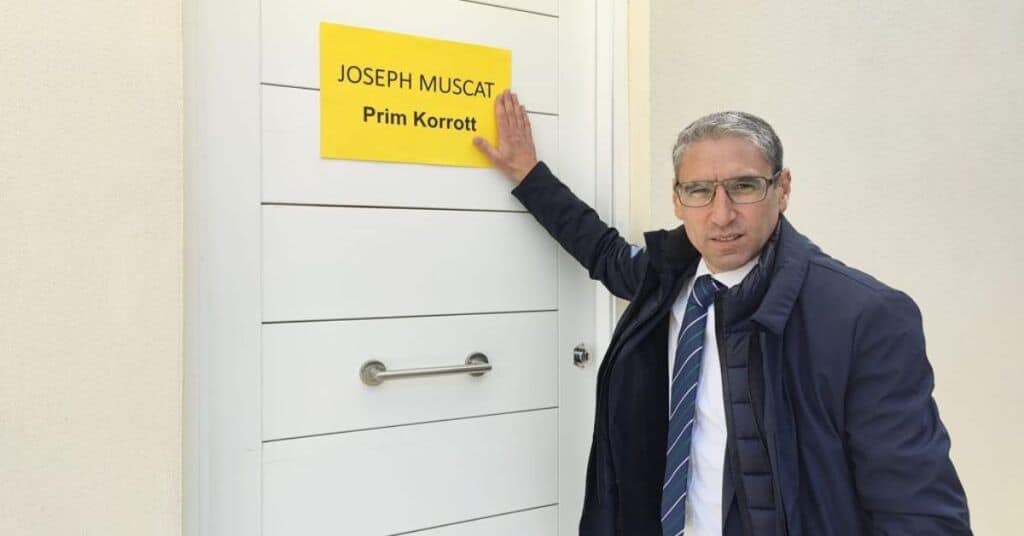
Robert Aquilina filed a complaint with the police after a fan of Joseph Muscat, using an alias on Facebook, said he would pour acid on Robert Aquilina for sticking a sign to Joseph Muscat’s office door saying, “Joseph Muscat Prim Korrott”.
The court found the man guilty of breaching Article 82A of the Criminal Code and handed down a 9-month prison sentence suspended for 3 years and a €5,000 fine.
The court observed that Robert Aquilina was very critical of Joseph Muscat that day. He did the Prim Korrott poster stunt just after a court decision that reversed the privatisation of three public hospitals, sold when Joseph Muscat was prime minister to people who poured money into Joseph Muscat’s personal bank account.
But it’s one thing to criticise public figures and another to incite violence against them. Robert Aquilina did not do that.
There’s another fine distinction to be made. Article 82A also criminalises writing that causes hate. What Robert Aquilina said about Joseph Muscat is not likely to cause people to like Joseph Muscat. But let’s be clear about one thing. When a public person is criticised for their actions, it is not the criticism that is responsible for the dislike it causes, it is the actions of the subject which are being criticised that cause the dislike. It is not the fact that Robert Aquilina says Joseph Muscat is corrupt that makes people who hear Robert Aquilina dislike Joseph Muscat. It is the corruption of Joseph Muscat that does that.
Criticism of public figures is fair. Threatening them in a way that incites people to be violent against them is not. Nor is causing people to hate public figures for something they did not do or cannot control, such as because they are gay, say, or women, or black.
A democratic society must protect the right of people to be strong with the words they use in respect of public figures. But it must also make sure that people are not allowed to incite violence against others or to cause someone to be discriminated against for unlawful reasons. That remains true when the targets of the incitement are public figures.
That is why Article 82A of the Criminal Code exists. It does not exist to punish Robert Aquilina for criticising in the strongest terms Joseph Muscat. It exists to stop a guy from threatening Robert Aquilina with acid or with letting their readers think that pouring acid on Robert Aquilina is legitimate. Which means in turn that Article 82A exists to allow Robert Aquilina to do his strong criticism of Joseph Muscat without having to live with the threat of having acid poured over him.
I’m being specific about the reference to the law the man broke when he said he would pour acid on Robert Aquilina for a reason outside the case. It’s the law Franco Debono wants the police to use against me for a simile I used when writing about his stubborn determination to inflict himself on the PN, having tortured it to tears the only time he served as an MP in its interests.
For legal reasons I should point out that the words “torture” and “tears” are literary devices which are not meant literally and are not meant to incite hatred or violence against Franco Debono.
Unpleasant criticism is not illegal, even if, nay, especially if that criticism is justified by the misconduct of a public person. Incitement to violence and hatred is. The difference should be clear.